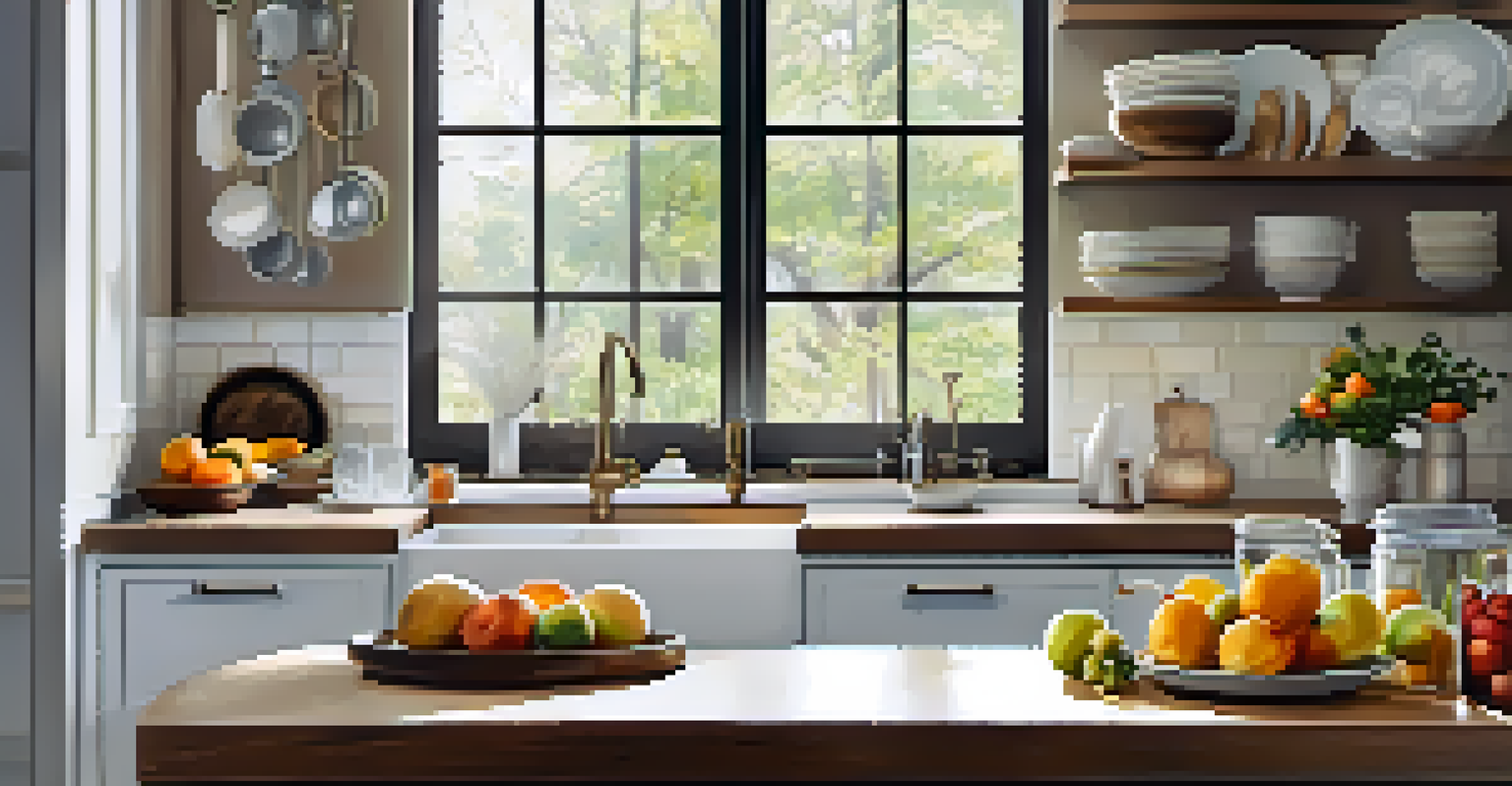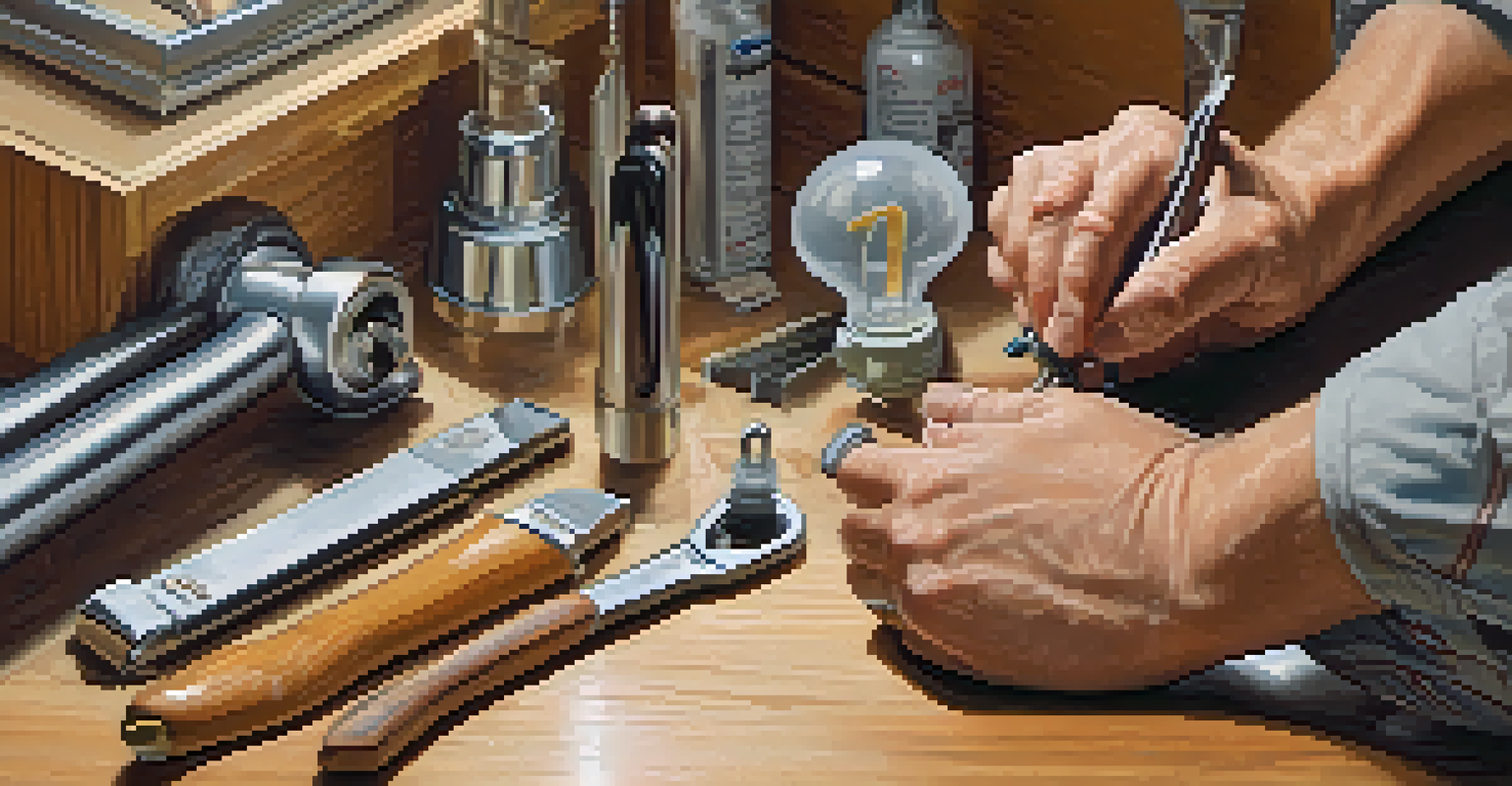How to Prepare for Rental Inspections as a Tenant

Understanding the Purpose of Rental Inspections
Before you dive into preparations, it's crucial to understand why rental inspections happen. Typically, landlords conduct these inspections to ensure that the property is being maintained properly and to check for any necessary repairs. Think of it as a health check for your rental home—just like you visit the doctor for regular check-ups.
The best way to predict your future is to create it.
These inspections can also protect you as a tenant. By identifying issues early, you can prevent larger problems down the line that could affect your living conditions. For instance, if there's a small leak in the ceiling, it’s much better to address it now than deal with mold later.
So, approaching your rental inspection with the right mindset can transform it from a stressful event into an opportunity to showcase your responsible tenancy.
Reviewing Your Lease Agreement Beforehand
Your lease agreement is like a roadmap for your rental experience. It outlines your responsibilities as a tenant, including maintenance tasks and property care. Before an inspection, take a moment to revisit this document to ensure you're complying with all stipulations.

For example, some leases require tenants to keep the yard maintained or ensure that appliances are cleaned regularly. Keeping these obligations in mind helps you avoid any misunderstandings with your landlord during the inspection.
Understand Rental Inspections
Rental inspections help ensure property maintenance and protect tenants from potential issues.
Being well-informed about your lease not only prepares you for the inspection but also demonstrates your commitment to being a good tenant.
Cleaning and Organizing Your Space Effectively
A clean, organized space speaks volumes during an inspection. Start by decluttering each room; this can be as simple as putting away personal items and tidying surfaces. Imagine walking into a home where everything is in its place—it instantly feels more inviting and cared for.
An ounce of prevention is worth a pound of cure.
Focus on high-traffic areas like the kitchen and bathroom, as these are often scrutinized. A quick scrub of sinks, countertops, and floors can make a significant difference. Plus, don’t forget to dust surfaces and vacuum carpets to present a fresh environment.
Remember, while you don’t need to deep clean everything, a little effort goes a long way in making a positive impression.
Addressing Minor Repairs Before the Inspection
Taking the time to fix minor repairs can show your landlord that you take pride in your home. Simple tasks, like replacing burnt-out light bulbs, tightening loose cabinet handles, or unclogging drains, can be quickly addressed. Think of these as little 'makeovers' for your living space.
If you're not handy, consider asking a friend for assistance or hiring a professional for more troublesome repairs. Addressing these issues before the inspection can save you from a landlord’s complaints later.
Prepare Documentation and Clean
Having relevant documents ready and maintaining a clean space demonstrates responsible tenancy.
Ultimately, demonstrating that you've taken care of these details can only strengthen your relationship with your landlord.
Preparing Documentation for Your Inspection
Having relevant documentation on hand is a smart strategy when preparing for an inspection. This could include your lease agreement, previous inspection reports, or any maintenance requests you’ve submitted. Think of it as your 'homeowner's portfolio'—a collection of evidence showcasing your responsible tenancy.
In case any disputes arise, having this documentation readily available can clarify your stance. For example, if your landlord raises a concern about a repair you reported, you can easily reference your request.
This preparation not only protects you but also demonstrates that you are organized and proactive.
Communicating with Your Landlord or Property Manager
Good communication is essential for a smooth inspection process. A few days before the inspection, reach out to your landlord or property manager to confirm the details. This includes the date, time, and any specific areas they will be focusing on during their visit.
If you have any concerns or questions about what to expect, don't hesitate to ask. Open dialogue can help alleviate any anxiety and ensure both parties are on the same page.
Communicate and Follow Up
Effective communication with your landlord and following up after the inspection fosters a positive relationship.
Remember, a friendly conversation can set a positive tone for the entire inspection and build a stronger landlord-tenant relationship.
Staying Calm and Confident During the Inspection
When the inspection day arrives, it’s natural to feel a little anxious. However, maintaining a calm and confident demeanor can make a world of difference. Take a deep breath, remind yourself that you’ve prepared, and approach the situation as an opportunity to showcase your home.
If your landlord points out any issues, listen attentively and ask questions if you need clarification. This shows that you are engaged and willing to address concerns.

A positive attitude can help foster a constructive environment during the inspection and leave both you and your landlord feeling satisfied.
Following Up After the Inspection
Once the inspection is over, it’s a good idea to follow up with your landlord. Thank them for their time and ask if there are any notes or issues they would like to discuss further. This small gesture can go a long way in maintaining a good relationship.
If any repairs were noted during the inspection, make a plan to address them promptly. Whether it’s something you can fix yourself or need to coordinate with your landlord, being proactive shows your commitment to the property.
Finally, keep a record of any communication regarding the inspection and repairs. This can help you stay organized and ensure nothing falls through the cracks.